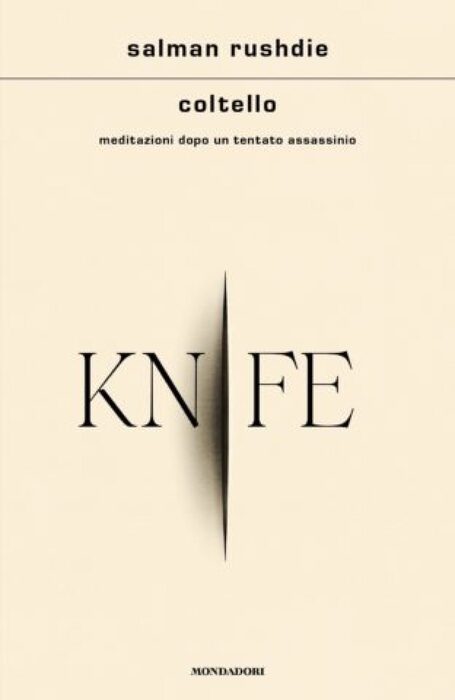Iranian Foreign Ministry spokesman Nasser Kanaani Thursday in Tehran.AP
Three days after the attack on Salman Rushdie in the US, Iran has officially spoken out for the first time to hold the British writer of Indian origin and his supporters responsible for the events, for having insulted Islam.
The spokesman for the Ministry of Foreign Affairs, Nasser Kanaani, stated on Monday that his government "only considers himself [Rushdie] and his followers deserving of condemnation and reproach."
In remarks quoted by Reuters, the diplomatic spokesman warned: "No one has the right to accuse Iran of these acts."
"Rushdie had exposed himself to popular anger for having insulted the sanctity of Islam and transgressing a red line for 1.5 billion Muslims," he added.
"Freedom of expression cannot justify abuses against religions and their principles."
Despite the fatwa (Islamic decree) decreed by Grand Ayatollah Ruholah Khomeini 33 years ago against the writer after the publication of the fictional book
The Satanic Verses,
Iran denies any responsibility for the attack.
"We reject any link with the attacker," spokesman Kanaani emphasized.
"Everything we know about the case comes from the media," he added.
In Iran's conservative media, the news was immediately greeted with praise for Rushdie's assailant.
The main newspaper linked to the conservative sectors of the regime,
Kayhan,
whose director is appointed by the Supreme Leader of Iran, Ayatollah Ali Khamenei, congratulated the attacker on Saturday.
"Bravo for this brave and duty-conscious man, who attacked the apostate Salman Rushdie," the newspaper read.
"Let us kiss the hand of the one who tore the neck of the enemy of God with a knife," the text added.
Following the official line, all the Iranian media describe Rushdie as an “apostate”.
The state-run newspaper
Iran
claimed, also on Saturday, that "the devil's neck" had been "hit by a knife."
a long convalescence
Rushdie, stabbed on Friday during a conference in Chautauqua (New York State, USA), has already started "the path of recovery", according to his agent, Andrew Wylie, on Sunday.
On Saturday night, Rushdie was disconnected from the respirator that was assisting him at a hospital in Erie, Pennsylvania, where he was transferred after the attack.
Despite the good prognosis, Wylie has warned that the writer's convalescence will be "long".
The detainee for the stabbing of the writer has been charged with attempted murder and is being held without bail.
Hadi Matar, a 24-year-old man from Fairview, New Jersey, who has pleaded not guilty, is charged with attempted murder and assault.
Born in the US, Matar is of Lebanese origin.
His family comes from an area in the south of the Mediterranean country, where the openly pro-Iranian Shiite militia party Hezbollah has its stronghold.
In Beirut, a Hezbollah spokesman said Saturday that the group has no information about the attack.
A police review of Matar's social networks, cited by the American channel NBCR, suggests that the young man sympathizes with the elite body of the Iranian Revolutionary Guard.
Tehran's official reaction comes in the midst of the reactivation of the nuclear agreement between Iran and the great powers, led by the United States.
The final proposal presented by the EU to recover the atomic pact signed in 2015 is considered "acceptable" by the Iranian government if it offers "guarantees" to its demands on "safeguards and sanctions".
The assassination attempt on Rushdie, which has cast new shadows on the Iranian regime, is a new obstacle to successfully closing talks that have been going on for 15 months.
Fled fundamentalism for 33 years
Rushdie had managed to escape the threat of fundamentalism for 33 years after the fatwa of the theocratic regime in Iran.
Born in Bombay (India) 75 years ago into a Muslim family – a religion he renounced to define himself as a militant atheist – Rushdie moved to the United Kingdom to study at Cambridge.
In 1964 he acquired British nationality.
The publication of
The Satanic Verses
in 1988 placed him in the center of the target.
The treatment of one of the characters, identified by his critics as the Prophet Mohammed, was considered blasphemous and several Muslim countries banned the spread of the work.
Iran even offered a reward to the executor of the sentence, which eventually exceeded three million dollars (2.9 million euros).
Rushdie was forced to live in hiding, with permanent police protection.
In 1998, reformist President Mohamed Khatami reneged on Khomeini's fatwa.
However, Ali Khamenei, the supreme leader, ratified it in 2017. In recent years, the writer had returned to normal life in the United States, where he has lived since 2000.
Follow all the international information on
and
, or in
our weekly newsletter
.

/cloudfront-eu-central-1.images.arcpublishing.com/prisa/OJUTCCQOG3GP53T3W5S2V2A5SY.jpg)






